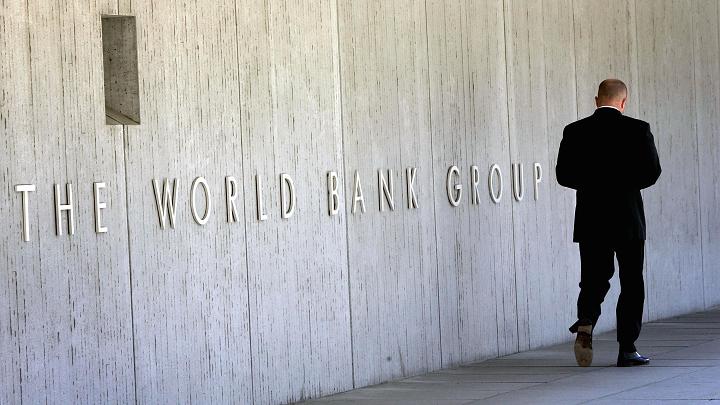
Win McNamee | Getty Images
An employee walks outside the World Bank headquarters in Washington, United States.
Experts say the roles of both institutions have shifted since their inception at Bretton Woods more than 70 years ago.
“The IMF is heavily involved in fighting crises around the world,” Steil said. “Neither the British nor the Americans ever envisioned the IMF doing that.”
Today the IMF keeps tabs on the global economy, provides technical assistance and training to implement economic policies and provides loans to member countries in need of financing. The World Bank, meanwhile, has focused primarily on development and reducing poverty.
Both institutions include 189 member countries and have vast operations around the world. The World Bank receives funding by issuing bonds to global investors, while the IMF is financed by quotas from member countries.
The institutions have their share of critics, in part because of the conditions attached to their loans. The IMF has come under fire for continuing to bail out countries like Greece that have struggled to clean up their finances. The World Bank has been accused of ignoring the social and environmental impacts of some its projects.
But Boughton said it’s premature for critics to write off the IMF and World Bank, adding their roles are likely to shift further as the global economy evolves.
“The basic mandates haven’t changed,” he said. “What’s changed is that the needs of countries across the world have evolved greatly.”

